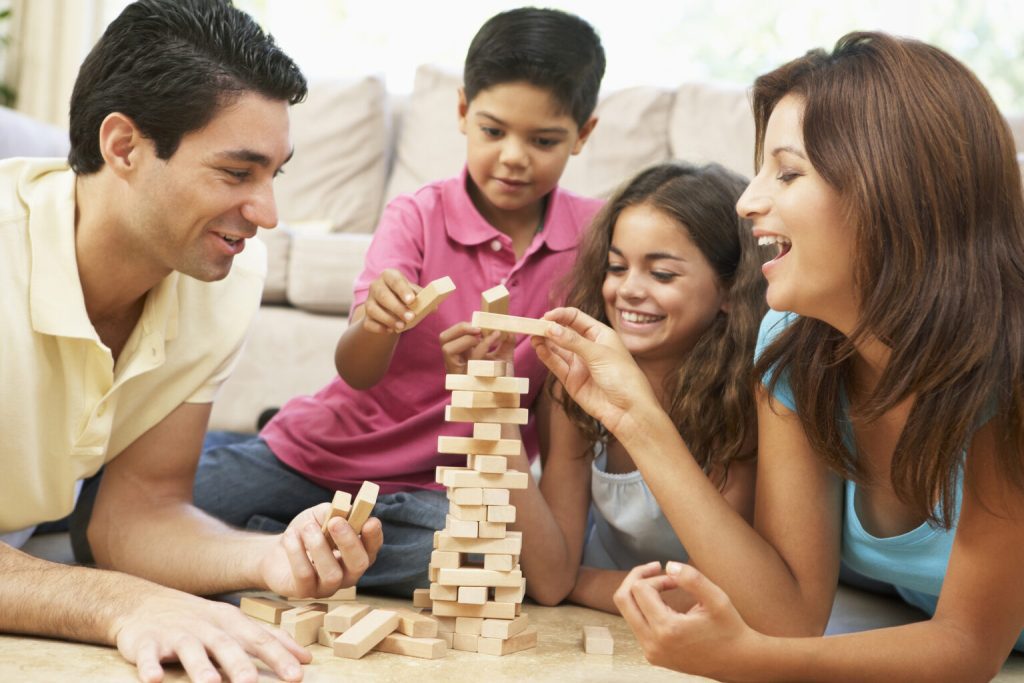
- Take space alone or away from children to process your own strong emotions.
The stressors upon us since last March are often overwhelming making it difficult to support our children. Children and adolescents learn how to respond to events from us. Strong emotional responses in front of children can be frightening, adding to anxiety. Before helping your children understand scary events, you should take time alone to process your own reactions, allowing you to meet your children where they are and provide what they need to feel safe. Self-regulation is an important step in nurturing connection in relationships. When your emotions are regulated, you are better equipped to respond rather than react to your children when they are acting out, having tantrums, unresponsive, or reacting to a scary event.
- As we talk with children it is important to discover what they already know about the event and explore how they are feeling.
There are so many ways children learn about events. They may receive information from social media, the news, friends, family, or other people in the community. Some of the information may be sensationalized and many times they only have bits and pieces of information. The information and language used to talk about events should be age appropriate. You would not use the same language with a young child that you would with an adolescent. As you discuss the disaster/event try to focus on the positive. For example, at the Capitol riots the congressmen were evacuated to safety and are now being protected by the national guard. Mr. Rogers, a well-known host of a preschool program, was taught when scary events happened “to look for the helpers. You will always find people who are helping.” Noting some positive elements can alleviate fear and anxiety.
- Provide a regular routine to create a sense of safety.
In fact ” children do best when routines are regular, predictable, and consistent.” A routine shows children what to expect on a daily basis and provides a sense of security in a world that is unpredictable. Routines also help children “develop a sense of mastery in handling their lives.” This adds to a sense of normalcy during chaotic times. The pandemic has changed how we do school, but incorporating a regular school routine, even when learning from home, can ease some of the insecurity and fear.
- Be intentional about connecting with your children.
Since children look to their parents and caretakers for safety it is important to be intentional about connecting with your children. This can be done in many ways. The first is being fully present. Put down your phone, computer, and any other distraction to listen and spend time with your children. This will look different for each family. For some this might happen at mealtimes. For others it might be small breaks throughout the day or even a set time and space created for the child. It requires the adult to give full attention to the child and his/her needs. What is your child trying to communicate? Actively listen and reflect that back to them. Validate their feelings and help them name what they are experiencing. If they are sad after attending virtual school and seeing their friends, you might reflect back to them, “You are really sad right now and missing your friends. You wish you could go back in person.” Don’t worry about reflecting the wrong emotion. Your children will let you know. Helping your children express themselves and validating what they are experiencing will nurture connection, emotional growth, and your children will feel understood and valued.
Playing with your children is another way to connect and create a secure environment. Play is the first language of children and is an outlet for them to process events and express what they are thinking and feeling. Play is a less intrusive way for children to show what they are thinking. This is especially true for children who do not have words to express what they are experiencing. Play also provides time for connection and relief from the stressors in life. Ask your children what they would like to play and then join them. Whether you are participating in creative play, games, crafts together, or spending time outside hiking or participating in sports you are nurturing a sense of safety, connection, and demonstrating that your child matters.
There is no doubt 2020 was a year full of challenges and 2021 will have its own share of difficulties, but in the midst of those we can still be a beacon of hope for our children, providing some stability through the provision of routines, being available to discuss tough events, allowing a safe space for them to process what they are experiencing, and just being present to see, hear, and play with them.
- “Something Bad Happened: A Kid’s Guide to Coping with Events in the News.” By: Dawn Huebner, PHD.
- 10 Things every parent should know about play https://www.naeyc.org/our-work/families/10-things-every-parent-play
- Talks about play therapy https://www.youtube.com/watch?v=zox3syT2qhk
- Helping Children with Tragic Events in the News https://www.pbs.org/parents/thrive/helping-children-with-tragic-events-in-the-news

